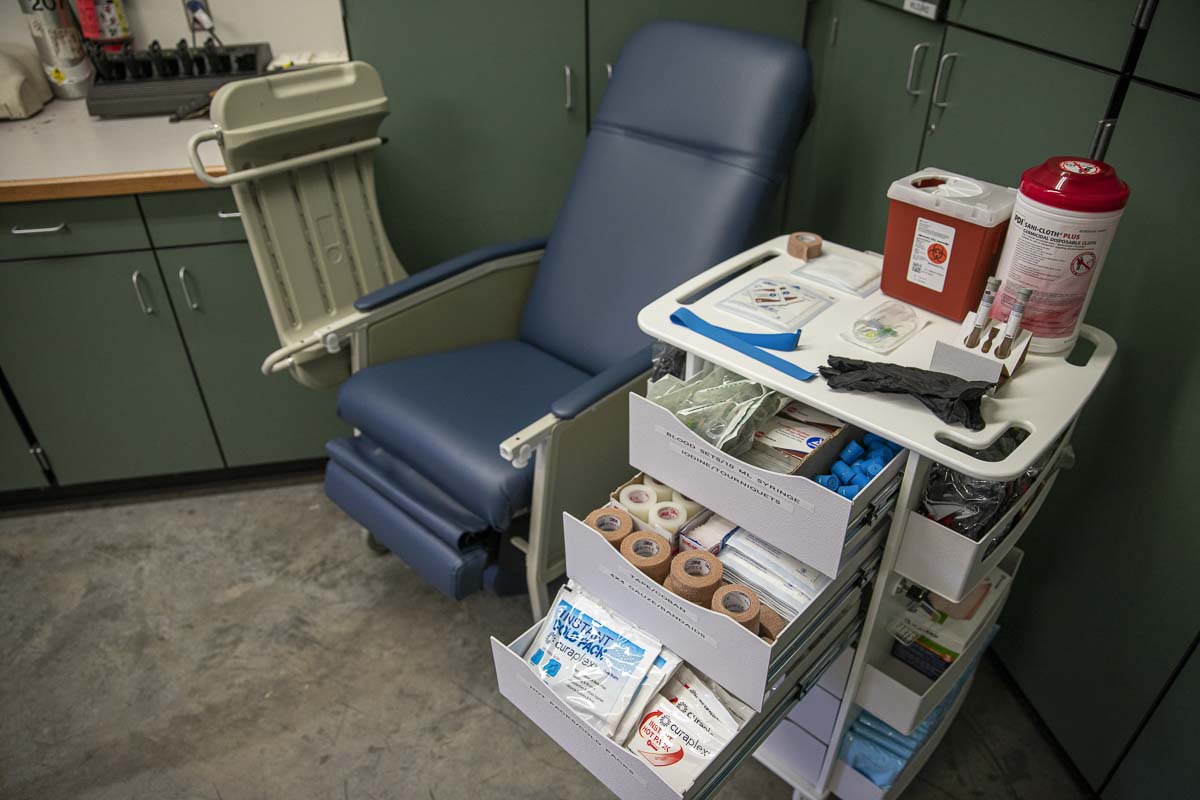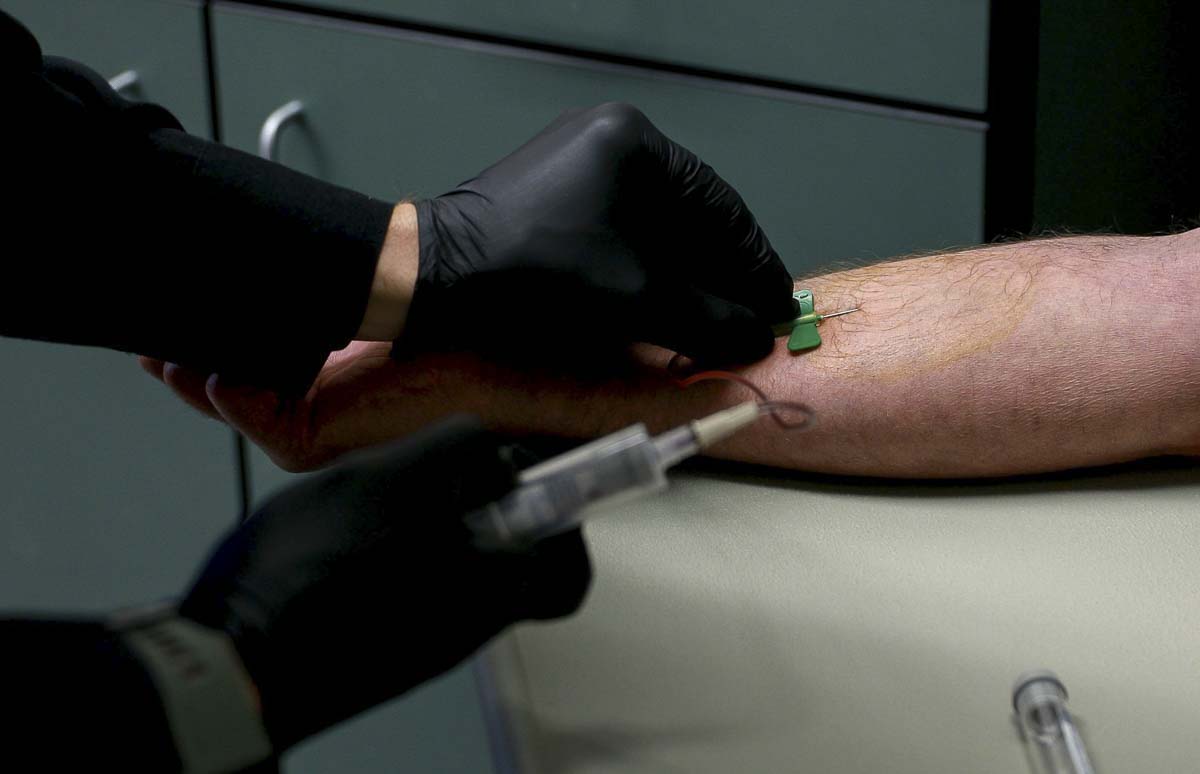Trained officers will conduct blood draws on-site at West Precinct, Washougal Police Department and on roadside
RIDGEFIELD — Over half of all 563 traffic fatalities in the state of Washington in 2017 were the result of impaired driving, according to Washington Traffic Safety Commission (WTSC). Whether the driver is drunk, high or a combination of both, it is considered impairment.
Now, the Clark County Sheriff’s Office (CCSO) and the Washougal Police Department are adding another method to investigate and end DUIs. Trained officers will now have the ability to conduct blood draws on DUI arrestees in the field, or in specifically designated locations at both agency’s facilities.

“For people that are under arrest for DUI, whether alcohol or drugs, one of the options is obtaining blood through a search warrant,” said CCSO Det. Ryan Preston. “It’s nothing new that we’re inventing. We’re just taking the programs from other places, putting them in our county to make everything a little bit more efficient. Chain of custody for evidence, getting the blood evidence in a quicker manner, and trying to alleviate the necessity for taking an ambulance out of service to do something that law enforcement can do.”
When someone is suspected of driving impaired, they are put through the field sobriety tests and asked to take a breath test. If the suspect refuses the breath test or if the officer has probable cause for DUI, a warrant can be obtained from a judge for a sample of the suspect’s blood.

In the time it takes to approve the warrant over the phone or traditionally, the goal of the agencies is to have an officer available to conduct the blood draw and expedite the testing process.
“We get on the phone with the blood draw officer and say, ‘Hey, this is what I have, this is where I’d like you to meet me.’ So a blood draw officer will actually start responding to whatever location that they’re at,” Preston said. “By the time they arrive on scene, the warrant has been complete, and we can start drawing blood right away, versus having to wait for the warrant then call someone. So it cuts down on the time about half hour, 45 minutes.”
To demonstrate the process, Sheriff Chuck Atkins himself, volunteered to have his blood drawn by Preston in CCSO’s newly set aside room at the agency’s west precinct. Atkins says he sees the pilot program as an effective and efficient tool that allows deputies to return to patrol much faster when investigating a DUI.

The program is funded through a grant with the WTSC, and is expected to grow. This spring, blood draw officers will begin training their peers in phlebotomy practices, and by mid summer the program should be able to provide 24/7 coverage of the county with its services, Preston said.
“There’s a kind of a three-pronged approach to really ensuring that a DUI successfully goes through litigation,” said Hilary Torres, WTSC program Target Zero’s region six program manager. “You have the SFSTs, which are the Standard Field Sobriety Tests. Then sometimes more expertise is needed, they would bring in a drug recognition expert like deputy Preston, and then the blood draw. So you’ve got that sort of a three-legged stool that supports that arrest and ensures that it’s successfully tried.”
WTSC program Target Zero is a major advocate of the blood draw testing, as it adds another layer of deterrent to the campaign against impaired driving. The organization also compiled a list of likely and possible consequences linked to a DUI charge:
- A $5,000 fine
- Legal bills of up to $10,000
- 100 percent increase in your insurance rates
- One year of jail time
- Suspended driver’s license
- Installation of an ignition interlock device on your vehicle
With more access to drugs such as marijuana, blood tests could become more widely used, as breath tests do not detect such drugs.
“I think this program, this opportunity, that Clark County Sheriff’s Office is stepping forward and taking up a resource and taking advantage of that, and ensuring the officers have the tools they need to keep us safe,” Torres said. “And I think that that’s full circle.”




